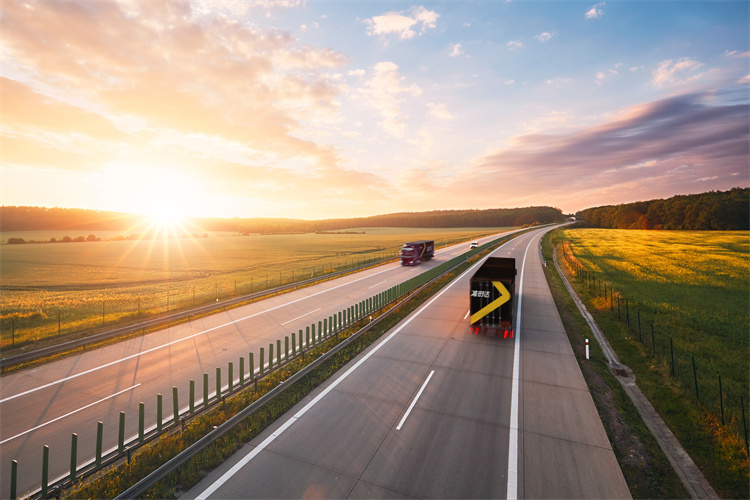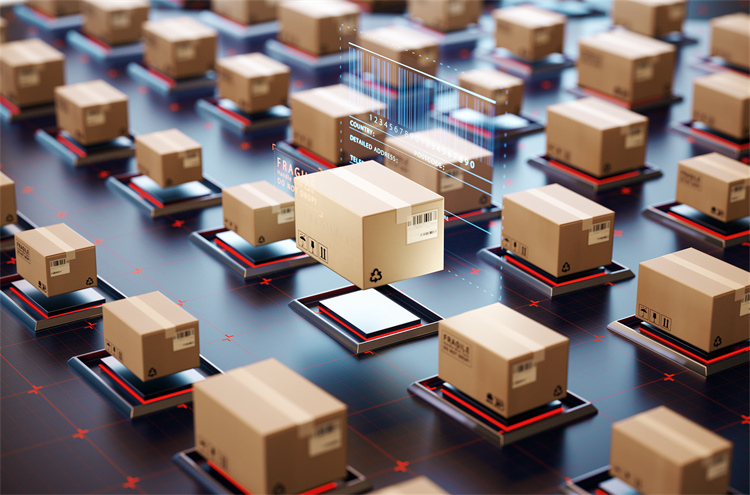Parcel Delivery Innovations: Tackling the Final Mile

Parcel delivery companies are transforming the way packages reach you. Innovations drive this change, making deliveries faster and more efficient. The final mile of delivery poses a significant challenge. This stage accounts for 40-50% of total shipping costs. Efficient last-mile logistics can reduce delivery costs by up to 15%. Companies use data to improve transparency and tackle obstacles in real time. The global market for last-mile delivery was valued at USD $38.5 million in 2021. It is expected to grow at a CAGR of 12.1%. These innovations are key to enhancing customer satisfaction.
Understanding Parcel Delivery Innovations
What Are Parcel Delivery Innovations?
Definitions and Key Concepts
Parcel delivery innovations refer to new methods and technologies that improve how packages reach customers. These innovations aim to make deliveries faster, cheaper, and more reliable. Companies use technology to optimize routes, track packages in real-time, and manage resources efficiently. Innovations also include alternative delivery options like drones and locker systems. These advancements help meet customer demands and enhance satisfaction.
Historical Context and Evolution
The history of parcel delivery is rich with innovation. Wells Fargo established the first official package delivery company in 1852. This marked the beginning of organized parcel services in the United States. In 1907, Jim Casey started a messenger service in Seattle. This small startup evolved into UPS, one of the largest delivery companies in the world. The introduction of parcel post by USPS in 1913 revolutionized package delivery. This system made it easier for consumers to receive goods and boosted mail-order businesses. By the late 20th century, national parcel services delivered 175 million packages each year. This growth reflects the increasing demand and scale of operations in the industry.
Why Focus on the Final Mile?
Importance in the Delivery Process
The final mile is crucial in the delivery process. This stage involves getting the package from a distribution center to the customer's doorstep. The final mile accounts for a significant portion of delivery costs. Efficient management of this stage can reduce costs and improve delivery speed. Companies focus on optimizing the final mile to enhance overall efficiency.
Impact on Customer Satisfaction
Customer satisfaction hinges on the final mile experience. Timely and accurate deliveries lead to happy customers. Real-time tracking provides transparency and builds trust. Innovations in the final mile ensure packages arrive on time and in good condition. Meeting customer expectations in this stage fosters loyalty and encourages repeat business.
Benefits of Innovations in the Final Mile

Efficiency and Speed
Reducing Delivery Times
Innovations in parcel delivery focus on speed. Companies use data analytics to predict demand and optimize routes. This approach shortens delivery times significantly. Urban warehouses and micro-fulfillment centers store products closer to you. These facilities reduce transportation time and costs. Drones and autonomous vehicles also play a role. These technologies ensure packages reach you faster.
Streamlining Operations
Streamlined operations are key to efficient delivery. Businesses leverage smart technology to enhance logistics. Real-time tracking systems provide transparency. You get accurate updates on your package's journey. Predictive shipping helps companies allocate resources efficiently. This reduces delays and improves reliability. The integration of automated dispatching systems maximizes efficiency.
Cost-Effectiveness
Lowering Operational Costs
Cost-effectiveness is crucial in last-mile delivery. Data-driven strategies help companies cut costs by up to 25%. Businesses analyze patterns to plan more effectively. This reduces unnecessary expenses. Technology like electric vehicles lowers fuel costs. Companies save money while maintaining service quality.
Enhancing Profit Margins
Innovations boost profit margins. Lower operational costs mean higher profits for businesses. Efficient delivery processes lead to satisfied customers. Happy customers often return, increasing sales. Companies that adopt these innovations stay competitive. Embracing new technologies ensures long-term success in the market.
Key Players in Parcel Delivery Innovations
Parcel Delivery Companies and Technology Firms
Role of Startups
Startups play a crucial role in parcel delivery innovations. These companies bring fresh ideas and agility to the industry. Startups often focus on niche markets and specific challenges. Many startups develop cutting-edge technologies like drone deliveries and smart lockers. These innovations help meet diverse customer needs. Startups also experiment with sustainable delivery methods. Electric bikes and eco-friendly packaging are examples. These efforts contribute to reducing the carbon footprint of deliveries.
Contributions of Established Firms
Established firms like UPS have shaped the logistics landscape. UPS began in 1899, catering to growing business demands. The company recognized parcel delivery's potential early on. UPS invests heavily in technology to optimize routes and improve efficiency. Real-time tracking systems enhance customer satisfaction. UPS also explores alternative delivery options. These include autonomous vehicles and advanced sorting facilities. Such innovations keep UPS at the forefront of the industry.
Logistics Providers like JUSDA
Integration of New Technologies
JUSDA integrates new technologies to tackle final mile challenges. The company uses big data and IoT for real-time monitoring. This approach ensures efficient resource utilization. JUSDA's JusLink platform offers end-to-end supply chain visibility. Clients benefit from precise business decision-making. The integration of AI-driven systems enhances supply chain competitiveness. JUSDA's technological prowess supports complex customer demands.
Partnerships and Collaborations
JUSDA's extensive network JUSDA's extensive network includes over 2,000 international routes. Such collaborations ensure reliable and efficient last-mile delivery. JUSDA's commitment to innovation strengthens its industry leadership.

JUSDA Solutions
To provide you with professional solutions and quotations.
Future Considerations and Challenges
Emerging Technologies
Drones and Autonomous Vehicles
Drones are changing how packages get delivered. These flying devices offer faster delivery times. Drones can reach remote areas easily. Companies use drones to bypass congested roads. This technology reduces delivery costs and improves efficiency. Autonomous vehicles also play a big role. These vehicles operate without human drivers. They enhance delivery speed and reduce labor costs. The use of drones and autonomous vehicles is growing in the logistics industry.
AI and Machine Learning Applications
The logistics industry continues to embrace AI for better service.
Addressing Challenges
Regulatory and Legal Issues
Drone and autonomous vehicle deliveries face legal hurdles. Governments set rules for safe drone operations. Companies must comply with these regulations. Legal frameworks evolve as technology advances. Businesses need to stay updated on these changes. Compliance ensures smooth operations and avoids penalties. Companies work with regulators to shape future policies.
Environmental Concerns
Parcel delivery impacts the environment. Companies focus on eco-friendly solutions. Drones offer a greener alternative to traditional vehicles. Electric vehicles reduce carbon emissions. Sustainable packaging minimizes waste. Businesses adopt green practices to meet environmental goals. Customers appreciate companies that prioritize sustainability. The logistics industry aims to balance efficiency with environmental responsibility.
Parcel delivery innovations are transforming how packages reach you. Technologies like drones and autonomous vehicles enhance delivery speed and efficiency. Companies invest in these advancements to tackle logistical challenges. The future of parcel delivery looks promising with emerging technologies. You can expect more personalized and efficient services. Embracing these innovations will ensure you receive your packages faster and more reliably. Stay informed and ready to adapt to these exciting changes in parcel delivery.
See Also
Paving the Way: Tomorrow's Logistics Enhanced by Digital Tech
Artificial Intelligence in Supply Chain: Transforming Future Logistics
Transforming Supply Chain: Innovations Shaping Logistics
Advancements in Logistics Technology: Exploring Future Possibilities
Innovative Cloud Solutions: Transforming Supply Chain Operations
